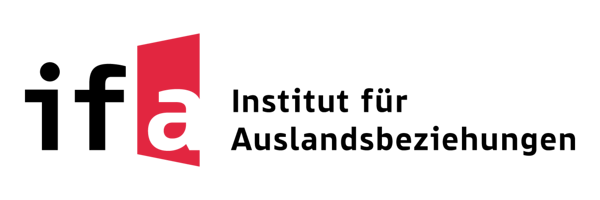ifa Gallery Stuttgart
Charlottenplatz 17
70173 Stuttgart
Germany
ifa—Institut für Auslandsbeziehungen is pleased to announce the new central platform for its network, collection and archive in the field of art—the ifa Agora. Now, for the first time, ifa’s significant art collection is made accessible to all, bringing it together with ifa’s international activities in the digital space. The new online platform provides a place for transcultural exchange.
The ifa collection currently comprises some 24,000 contemporary artworks (20th and 21st-century) from the Federal Republic of Germany, the German Democratic Republic and beyond. Built up over five decades, this collection provides the basis for the ifa Agora, a knowledge repository that presents ifa’s past and current work and provides access to external knowledge, reports and reviews. The platform provides space for ifa’s transcultural networks, which are made accessible worldwide in digital form and are constantly being expanded.
The launch of the Agora will see the publication of an initial selection of international touring exhibitions with fascinating information about their content, project partners and itineraries—the first time that a large part of the collection has been displayed online. As the Agora grows, various touring exhibitions past and present as well as ifa’s activities in the art sector will gradually go online. The ifa Agora offers snapshots of current artistic and curatorial processes and access to a wealth of ifa knowledge and experience in global artistic communication and exchange.
Gitte Zschoch, Secretary-General of ifa—Institut für Auslandsbeziehungen, comments: “Our collection has seen the world—and now, with the Agora, we are making it accessible to everyone. Everyone can now find out about the 100-plus museums that have displayed Otto Dix’s war prints to date—including Palermo, Colombo, Tartu, Oaxaca, Minsk and, this year, Yerevan. In this way, we are telling the story of ifa’s international work and, accordingly, Germany’s cultural liaison work in our partner countries. What is particularly interesting is that we are also commemorating the history of the GDR’s international art policy, because 11,000 works on paper were transferred to the ifa collection from the GDR Centre for Art Exhibitions in 1991 and are now being gradually digitised.”
The ifa Agora provides detailed information on works, artists and the corresponding ifa exhibitions. All content is connected: every time a new artwork is made available in digital form and examined in its context, the Agora changes, as do the research possibilities it offers. Over time, the Agora will provide a more detailed understanding of the works that have emerged from touring exhibition runs and collaborations all over the world since 1971, and that have been bought or borrowed for such exhibitions. The ifa Agora will gradually be able to recall and relate more than 50 years of international art and cultural relations from many different perspectives. One of the stories—or histories—will be that of the artistic representation of the Federal Republic of Germany and the German Democratic Republic.
Today, the Agora features 1,840 works, 20 exhibitions—including 18 exhibitions from the current touring exhibition programme and two from the archive (Hannah Höch and Joseph Beuys)—and 258 artists. More exhibitions, works and artists will be added in the years to come, drawn from the activities of the ifa galleries in Berlin and Stuttgart, ifa funding, the German Pavilion at the Venice Biennale, and the collection of the GDR Centre for Art Exhibitions. The ifa Agora makes the collection accessible to all, including museums, cultural institutions and ifa partners worldwide, along with universities and researchers interested in contemporary art or international cultural relations.
Selected artists in touring exhibitions
Otto Dix in Minsk (2007), Wolfgang Tillmans in Kinshasa (2018) and Abidjan (2022), Hannah Höch in 111 locations worldwide from 1985-2016, Rosemarie Trockel in Prague (2003) and Montevideo (2007), Noa Eshkol in Beer Sheva (2019), Joseph Beuys in Kiev and Cape Town (1999), Nasan Tur in Riyadh (2022), Helga Paris in Mumbai (2014)
For more information on current touring exhibitions, visit here.
About ifa
As an independent intermediary organisation, ifa—Institut für Auslandsbeziehungen plays a leading role in international artistic and cultural exchange, and its work helps to shape Germany’s international cultural relations. ifa is funded by the German Federal Foreign Office, the state of Baden-Württemberg and the state capital Stuttgart.
For further information: agora [at] ifa.de

